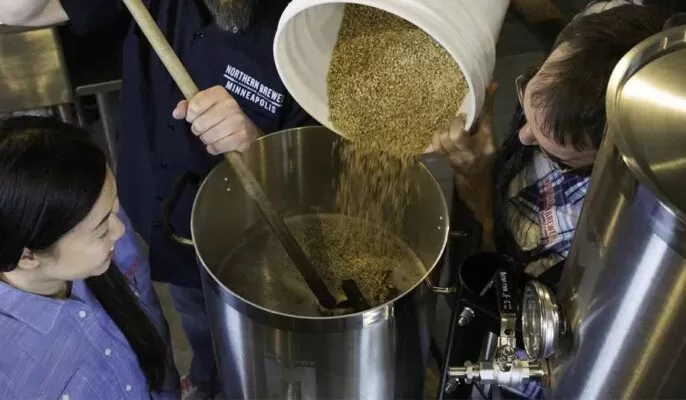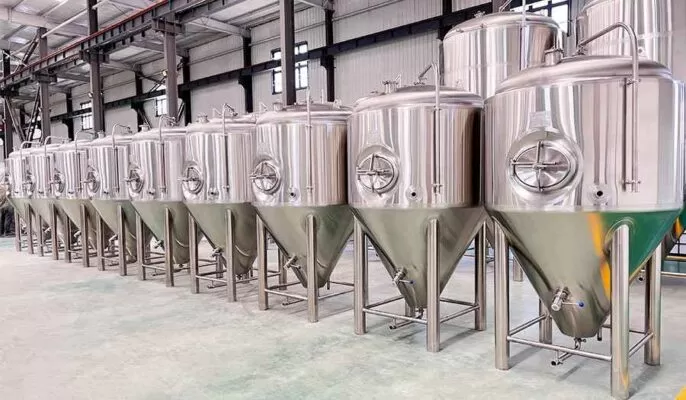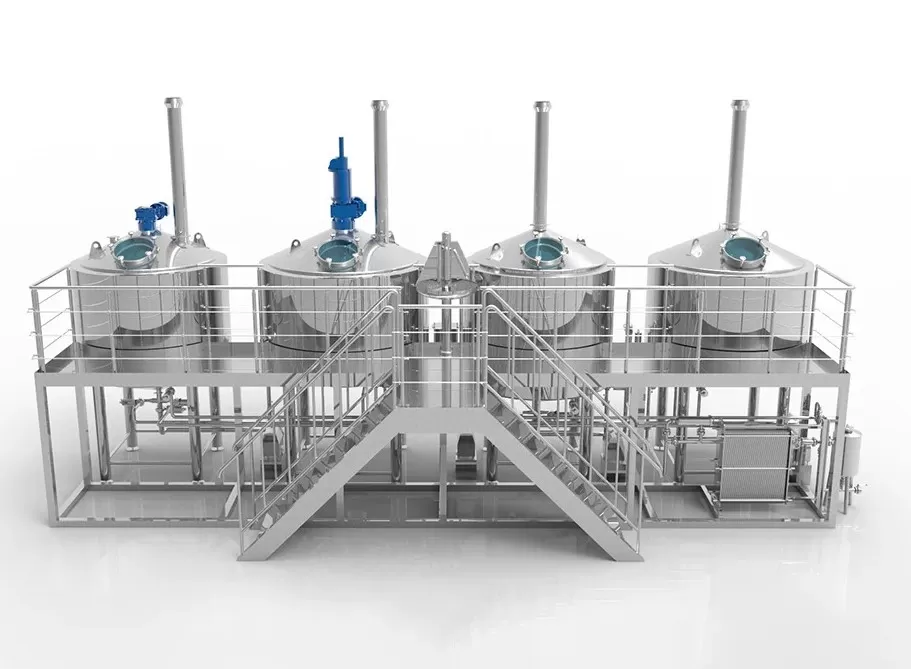Learn the basic equipment you need to brew beer at home. Anyone can brew delicious beer at home. Making good homebrew does must some specialist equipment, but you don’t have to spend a lot of money to get started. Beer equipment is definitely the largest upfront cost of homebrewing, but it is also the most important to your success and happiness as a homebrewer. Bad equipment can cause you some serious trouble and make your entire home brewing experience very frustrating. Next, let’s discuss in depth what essential equipment is needed for craft beer.
Beer brewing method
All Grain Brewing
Brewing is made with malt, so the mash must be processed (soaking the malted grains to extract the sugars), spraying (rinsing them to remove the last of the sugar), and boiling. It gives you the most flexibility, but can also cause the most trouble.
Extract Brewing
Buying malt extract in syrup or powder form skips the mashing stage, which simplifies brew day, although you do have to consider adding hops at the boil.
Beer kit brewing
A simple form of extract brewing in which hop extract is added to the malt syrup, allowing you to skip the boiling process . All that is required is to dilute the syrup according to the instructions and then let it ferment before bottling.
While the process is simpler, you will usually need to transfer the drink from the accumulated sediment to a second carboy or fermentation barrel, so keep this in mind when preparing.

A Checklist of Essentials for Getting Started with Brewing
Home Brewing Books
Before getting to the actual equipment, every brewer needs some literature to guide them through their first batch of beer. After getting a batch or two of homebrew, homebrewers can upgrade to more advanced books.
Kit brewing
A beer kit will contain all the ingredients needed to make a beer, usually a can of malt extract containing hop oil and a bag of yeast. All you need to do is mix hot and cold water in the prescribed proportions and volumes, add the yeast (added to the mixture) and let it do its thing. Make sure you clean and disinfect everything first.
Fermenter
To ferment your kit beer, you will need a fermentation bucket. When wort is fermented into beer, a container is needed to hold the wort. Food-grade plastic or glass carboys or fermentation buckets with air-tight lids and airlocks are essential. Here the yeast converts sugar into alcohol and creates the beer’s flavor and aroma. 6-gallon fermenters are ideal for primary fermentation. Even though you’ll be brewing a five-gallon batch, the extra space allows for clausson or foam to form during the height of fermentation.
Airlock
The airlock is not necessary for the barrel and lid, but is definitely a big improvement, allowing the lid to open to allow the CO2 to escape. For large bottles, they are a must.
Home Brewing Hydrometer
A hydrometer is used to measure the specific gravity (density) of the wort before and after fermentation. It helps determine alcohol content and fermentation progress. place a sterilized homemade hydrometer into the unfermented wort to take the first measurement – called Original Gravity (OG). After fermentation, it is taken again – called final gravity (FG). The difference between the two is used to calculate alcohol by volume (ABV)!
Thermometer
Fermentation temperature is important. Too cool and the yeast won’t ferment; too hot will encourage bacterial growth and may cause the yeast to die.
Brewery equipment
If you plan to brew an all-grain beer, you’ll need more equipment, such as a mash tun (which converts grains into sugar) and a hydrothermal tank (which heats the brewing water).

Bottle or keg
Once your beer is ready, you’ll need containers to store it. Many homebrewers use bottles or kegs, each with its own pros and cons. Bottles must caps and cappers, while kegs must CO2 tanks and carbonation regulators.
Bottle or keg cleaning and filling equipment
You’ll also need a bottle or keg cleaning system and a bottling wand for clean and efficient transfer of beer to bottles or kegs.
Siphon/Pipe
Siphons and pipes are a great way to simplify moving hot wort or finished beer without the hassle and mess of lifting and pouring a lot.
Clean and disinfect
Homebrew-specific cleaners can be found at your local homebrew shop, but unscented dishwasher detergent will also work. Avoid using scented products, which can remain in the beer after cleaning and cause off-flavors and aromas in the beer.
Unlike cleaners, sanitizers ensure that after cleaning there are no microbes present that could damage items on your brewing equipment.
Home brewing is exciting. Having your brewing equipment and the tools you need before you start is a critical step to success. Learn the tools you need to start making delicious beer!




